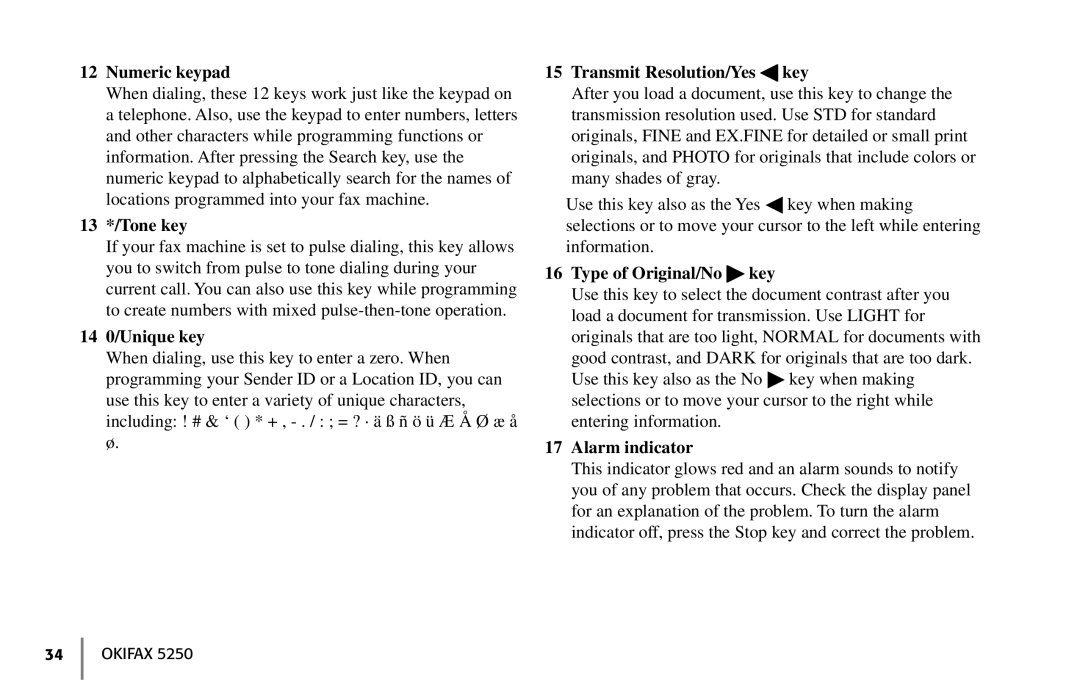12Numeric keypad
When dialing, these 12 keys work just like the keypad on a telephone. Also, use the keypad to enter numbers, letters and other characters while programming functions or information. After pressing the Search key, use the numeric keypad to alphabetically search for the names of locations programmed into your fax machine.
13*/Tone key
If your fax machine is set to pulse dialing, this key allows you to switch from pulse to tone dialing during your current call. You can also use this key while programming to create numbers with mixed
140/Unique key
When dialing, use this key to enter a zero. When programming your Sender ID or a Location ID, you can use this key to enter a variety of unique characters, including: ! # & ‘ ( ) * + ,
ø.
15Transmit Resolution/Yes ◀ key
After you load a document, use this key to change the transmission resolution used. Use STD for standard originals, FINE and EX.FINE for detailed or small print originals, and PHOTO for originals that include colors or many shades of gray.
Use this key also as the Yes ◀ key when making selections or to move your cursor to the left while entering information.
16Type of Original/No ♣ key
Use this key to select the document contrast after you load a document for transmission. Use LIGHT for originals that are too light, NORMAL for documents with good contrast, and DARK for originals that are too dark. Use this key also as the No ♣ key when making selections or to move your cursor to the right while entering information.
17Alarm indicator
This indicator glows red and an alarm sounds to notify you of any problem that occurs. Check the display panel for an explanation of the problem. To turn the alarm indicator off, press the Stop key and correct the problem.
